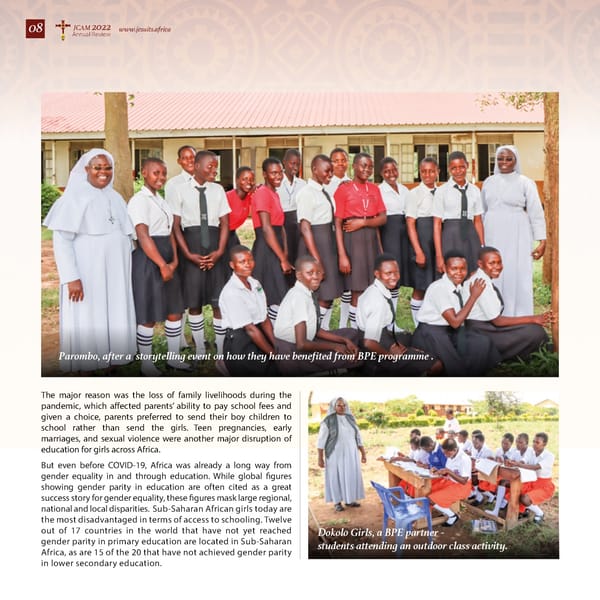08 JCAM 2022 www.jesuits.africa Annual Review Parombo, after a storytelling event on how they have benefited from BPE programme . The major reason was the loss of family livelihoods during the pandemic, which affected parents’ ability to pay school fees and given a choice, parents preferred to send their boy children to school rather than send the girls. Teen pregnancies, early marriages, and sexual violence were another major disruption of education for girls across Africa. But even before COVID-19, Africa was already a long way from gender equality in and through education. While global figures showing gender parity in education are often cited as a great success story for gender equality, these figures mask large regional, national and local disparities. Sub-Saharan African girls today are the most disadvantaged in terms of access to schooling. Twelve out of 17 countries in the world that have not yet reached Dokolo Girls, a BPE partner - gender parity in primary education are located in Sub-Saharan students attending an outdoor class activity. Africa, as are 15 of the 20 that have not achieved gender parity in lower secondary education.
 Jesuits Africa Annual Review 2022 Page 7 Page 9
Jesuits Africa Annual Review 2022 Page 7 Page 9